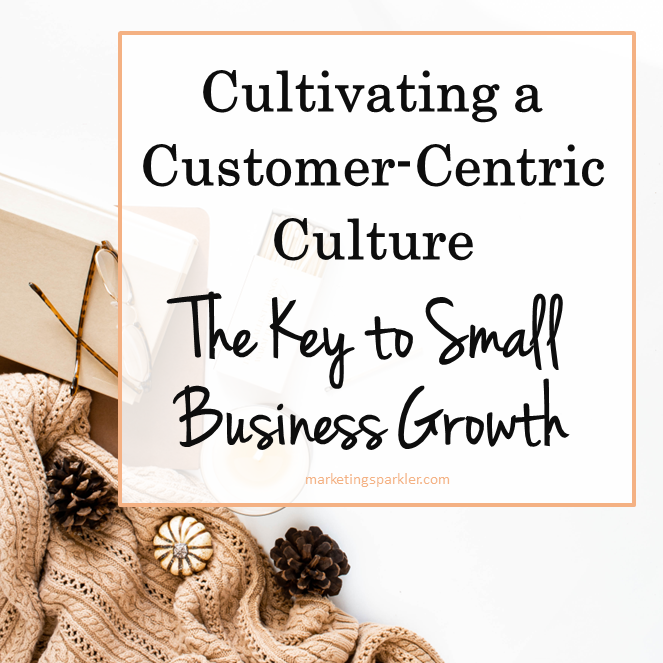In an increasingly competitive business landscape, small businesses must find unique ways to differentiate themselves and fuel growth. One of the most powerful strategies they can employ is cultivating a customer-centric culture. This approach places the customer at the heart of every business decision, operation, and interaction.
By focusing not just on what you sell, but how you sell it, businesses can foster stronger customer relationships, enhance loyalty, and ultimately drive substantial growth. As we delve into this topic, we’ll uncover what it means to be customer-centric and how this mindset can be the engine for small business expansion.
Cultivating a Customer-Centric Culture: The Key to Small Business Growth
Embracing the Customer-Centric Mindset
Being customer-centric goes beyond offering excellent customer service; it requires a shift in mindset and overall business operations. At its core, a customer-centric approach is about seeing your business from the customer’s perspective and prioritizing their needs and experiences.
This approach involves understanding your customers deeply. It means knowing their preferences, their pain points, and what they value most in your products or services. It’s about empathizing with their journey and shaping your business strategies accordingly. This might involve personalizing your marketing efforts, enhancing product quality, or refining your service delivery.
Additionally, being customer-centric involves instilling this mindset across all departments, not just customer service. From marketing to product development, to sales – everyone in the organization should understand and value the customer’s perspective. In the following section, we’ll explore how technology can play a pivotal role in enabling a customer-centric culture for the ongoing benefit of your business.
Leveraging Technology for Customer-Centricity
In our digital age, technology plays an instrumental role in shaping a customer-centric culture. For instance, Customer Relationship Management (CRM) systems provide invaluable insights into customer behaviors and preferences. They enable businesses to track interactions, segment customers, and personalize communications, thus fostering stronger relationships. This level of granular detail allows a business to tailor what it does in a range of different situations.
Similarly, customer feedback tools can facilitate the collection of valuable customer opinions and suggestions. These tools not only help businesses identify areas for improvement but also show customers that their voice matters.
In industries requiring logistical coordination, tools like BuildOps field service management software can be vital for maintaining customer satisfaction. By ensuring efficient service delivery and timely resolution of issues, such solutions allow businesses to meet and exceed customer expectations, a key aspect of being customer-centric; especially in a marketplace like the present, where people expect service to be as good and as speedy as possible.
As we’ll see next, technology is just one part of the equation. Developing a customer-centric culture involves implementing a range of strategic initiatives.
Cultivating Customer-Centricity: Key Strategies
Achieving customer-centricity involves implementing a host of strategic initiatives across various business domains. Here are a few key strategies that small businesses can adopt:
Personalized Marketing
In a customer-centric business, marketing isn’t just about selling; it’s about communicating value in a way that resonates with the customer. Personalized marketing strategies use customer data to tailor communications, creating messages that feel individual and relevant. This personal touch can enhance customer engagement and brand loyalty.
Exceptional Customer Service
Providing top-notch customer service is an essential aspect of customer-centricity. This includes not only resolving issues quickly and efficiently but also going the extra mile to exceed customer expectations. Remember, delighted customers can become your biggest advocates.
Active Customer Engagement
Engaging customers in meaningful ways can foster stronger relationships. This might involve creating a vibrant community around your brand, soliciting customer feedback, or simply acknowledging important moments in your customers’ lives.
Continuous Learning and Improvement: Being customer-centric means constantly striving to understand your customers better and to improve based on their feedback. It’s about maintaining a growth mindset and staying adaptable to evolving customer needs.
In the next section, we will discuss the impact of these efforts on small business growth.
Customer-Centricity: Fueling Small Business Growth
When small businesses adopt a customer-centric approach, the benefits can be transformative. First and foremost, by prioritizing customer satisfaction, businesses cultivate stronger loyalty. Happy customers not only continue to choose your product or service, but they also become brand ambassadors, contributing to positive word-of-mouth marketing.
Moreover, customer-centric businesses are likely to see an increase in customer lifetime value. By consistently meeting and exceeding expectations, customers are more likely to stick around and make repeat purchases, leading to a steady revenue stream.
Simply put, a customer-centric culture can serve as a powerful growth engine for small businesses, creating a virtuous cycle of satisfaction, loyalty, and growth.
The Power of Customer-Centricity
In conclusion, cultivating a customer-centric culture is not just a strategy—it’s a mindset that can significantly propel small business growth. By deeply understanding customers and tailoring operations to meet their needs, businesses can foster loyalty, amplify word-of-mouth marketing, and ultimately drive sustained growth. Customer-centricity, therefore, lies at the heart of successful entrepreneurship in today’s competitive landscape.
Ciao,
Miss Kemya
- Why You Have To Hire People To Make More Money - 04/17/2024
- Why Is Your Business In A Rut? - 04/02/2024
- Your Sales Offer Isn’t Special If Your Sale Never Ends - 03/15/2024

